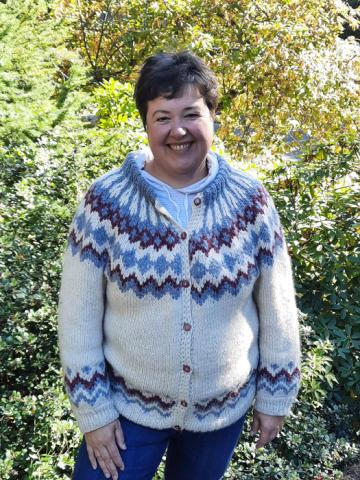How do I, a White person, speak with integrity about the racial experiences I’ve never had?

Learning
For 10 years, I had the honour of serving a church in Toronto that had a large number of people from the Caribbean in the congregation. Black History Month was important in this congregation, so my first February there, I realized that I, a White minister, had to learn how to lead Black History Month worship for a multi-racial congregation for the first time, and I had no idea how to do it. I had the brilliant idea of asking the chair of the board, who was from the Caribbean island nation of Nevis, to lead a worship service. Perfect—he was a well-respected elder who often led worship.
This man was also a retired high school teacher. When I asked him to lead the Black History Month service, he smiled warmly and, with a twinkle in his eye, simply said, “Pastor, you need to learn how to lead a Black History Month service.”
I wasn’t off the hook. This teacher was going to help me learn, but he wasn’t going to do it for me. I had a lot to learn, and the people of this congregation helped me understand what it means to have privilege. They would laugh when I said ridiculous things like “I’ve been the only person of my colour in a room, too.” They teased me gently and then told stories about the casual, everyday micro-aggressions they faced. They told stories about how they learned to drive carefully, obeying every rule and regulation, and were still pulled over for “driving while Black.” Or were followed in stores. Or were referred to not by their names, their accomplishments, or their occupations but by the colour of their skin, in subtle and blatant ways. They helped me learn how my reality was different in ways I never even knew were different, simply because of the colour of my skin. I learned of obstacles I didn’t know existed that are the everyday reality for some Indigenous and racialized people. The people of my congregation taught me with love and humour and grace and patience.
I never got completely comfortable with leading a Black History Month service. How do I, a White person, speak with integrity about the racial experiences I’ve never had? I firmly believe that I need to make space and do way more listening—because I get lots of opportunities to talk, while others are not listened to as much as I am. I have named and spoken out against obvious racism when I’ve witnessed it. But I still struggle with how and when to speak when I’m afraid of offending or saying the wrong thing, and to do so even when I don’t feel I have the right to be the one speaking.
What I’ve learned most of all is that I have an obligation and a calling to keep trying. To keep showing up. To sit in that discomfort without trying to make things “better.” To keep listening and participating in the conversations no matter how tough they are. To keep discerning when it’s my turn to listen and when it’s important that I speak. I know that I’ll make lots of mistakes, and I will always be grateful to the congregation of St. Matthew’s who loved me through a lot of those mistakes! I have lots of privilege because of my skin colour—among other things—and this comes from an institution and a society built on racism and White-supremacy. Acknowledging that is really only the beginning. But it is the beginning of real, mutual, and transformational conversations.
Faith Reflection
Prayer
Loving God—open my heart and my mind to understand the stories of your children all around me. Help me discern when to speak, when to listen, and when to hold discomfort as sacred. Guide me to the places where I need to be, to keep participating in the conversations that honour the experiences of the people around me. Help me to acknowledge my privilege but not use it as an excuse or a shield. May I be a healing presence more times than a harmful one. Amen.
Living It Out
Where do you have the opportunities to “show up” to conversations that challenge and stretch you? You can invite racialized people to speak outside of designated months—e.g., a Black leader to speak not only in Black History Month. Instead of relying on racialized people to always be the teachers, do work on understanding what privilege actually is and why it matters. Your congregation can participate in a study such as White Privilege: Let’s Talk from the United Church of Christ and—of course—the 40 Days of Engagement on Anti-Racism. Find out what resources are available to understand the need for reconciliation, such as the KAIROS Blanket Exercise, and offer opportunities for your community to delve into the systems that still cause trauma and discrimination today. Don’t be afraid of exploring privilege—it can be a tool for understanding and communication, not just a label or condemnation.
—Katherine Brittain (she/her) is an Ordained Minister living and working on the unceded and traditional territories of the Hul’qumi’num-speaking peoples, where the Malexal and Quw’utsun’ peoples meet, on Southern Vancouver Island. She serves the shared ministry of Sylvan United Church and Camp Pringle. She’s a wife, a mom, and a member of the Two Spirit and LGBTQIA+ community. In her spare time, she bakes bread, makes jam, and hangs out with her dog, Benji.